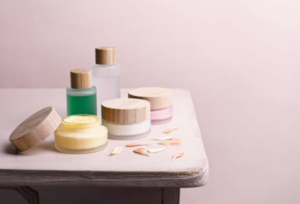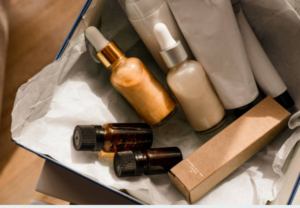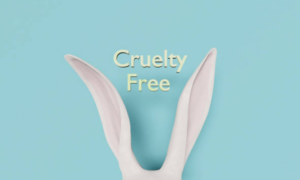A Kinder World

In a world increasingly conscious of its ecological footprint and ethical responsibilities, the beauty industry is undergoing a remarkable transformation. Veganism, once considered a niche lifestyle, has surged into the mainstream, and its impact is resonating far beyond just dietary choices. Veganism has become a lifestyle and a philosophy, and it has powerfully impacted the world of beauty. In this blog, we will explore the profound impact of veganism on animal welfare, with a focus on beauty products. We’ll delve into the cruelty-free movement, the rise of vegan beauty brands, and the positive change we can bring about by making conscious choices in our beauty routines.
The Intersection of Veganism and Beauty
Veganism is a way of life that seeks to exclude all forms of exploitation and cruelty to animals, not only in our diet but in every facet of life, including beauty products. This philosophy extends beyond the plate to cosmetics, skincare, and even fragrance. The ethical reasons behind embracing vegan beauty are rooted in the desire to reduce animal suffering and promote a more sustainable and compassionate world.
One of the most significant aspects of vegan beauty is the cruelty-free movement. Animal testing has long been a contentious issue in the cosmetics industry. The cruel reality is that countless animals, such as rabbits, mice, and guinea pigs, have been subjected to painful experiments to test the safety of beauty products. The adoption of cruelty-free practices by vegan beauty brands has made a monumental change in the industry. These brands do not conduct any testing on animals and do not use ingredients that have been tested on animals. By choosing cruelty-free products, consumers can contribute to the gradual eradication of these inhumane practices.
The Rise of Vegan Beauty Brands
The surge in vegan beauty brands represents a dynamic shift in the beauty industry. These brands have captured the essence of ethical beauty and successfully cater to an ever-growing consumer base. Their emergence is more than just a response to the demand for cruelty-free products; it is a reflection of evolving consumer values, an affirmation of the power of ethical consumption, and a redefinition of beauty in the 21st century.
One of the most remarkable aspects of vegan beauty brands is their unwavering commitment to producing high-quality products that do not compromise on performance or efficacy. In the past, there was a prevailing misconception that vegan beauty products might be less effective or less luxurious compared to their traditional counterparts. However, this notion has been entirely debunked by the rise of vegan beauty brands.

These brands invest heavily in research and development to create innovative, science-backed formulas that meet and often exceed consumer expectations. They use a combination of plant-based and synthetic ingredients to craft products that rival the performance of traditional cosmetics. Whether it’s a long-lasting matte lipstick, a hydrating facial serum, or a volumizing mascara, vegan beauty brands have proven that beauty products can be cruelty-free without sacrificing quality.
Vegan beauty brands have redefined the aesthetics of ethical cosmetics. They prioritize sleek and stylish packaging, providing a visual and tactile experience that rivals luxury beauty brands. These brands understand the significance of presentation and have successfully created products that are not only ethical but also alluring.
The presentation of vegan beauty products reflects an appreciation for elegance and beauty that aligns with contemporary aesthetics. From chic, minimalist designs to vibrant, artistic packaging, these brands offer a diverse array of choices that cater to the modern consumer’s tastes. By embracing the elegance of vegan beauty, consumers can adorn themselves with cosmetics that not only enhance their appearance but also reflect their commitment to ethics and aesthetics.
Transparency is a key pillar of the vegan beauty movement. Vegan beauty brands often take great care to communicate their values and sourcing practices clearly to consumers. They are open about the ingredients they use and their commitment to cruelty-free and vegan principles. This transparency fosters trust among consumers who seek assurance that their beauty choices align with their ethical beliefs.
Moreover, these brands prioritize ethical sourcing of ingredients. They work with suppliers who share their commitment to sustainability and ethical practices. For example, they may source botanical ingredients from regions with a focus on fair trade, supporting local communities and economies. This ethical approach to ingredient sourcing ensures that vegan beauty products are not only kind to animals but also support global sustainability and community well-being.
In addition to cruelty-free and animal-free ingredients, vegan beauty brands often prioritize sustainability in their packaging. Many utilize recyclable materials and minimize single-use plastics. By doing so, they reduce their environmental footprint, helping to preserve natural habitats and ecosystems that are critical to the well-being of animals.
The increasing popularity of vegan beauty is indicative of a broader shift in consumer values. People are more conscious than ever about their purchases and the impact they have on the world. The connection between beauty and ethics has never been stronger. By choosing vegan beauty products, consumers not only improve animal welfare but also contribute to a more compassionate and sustainable future.

The Downside of the Beauty Industry
While the vegan beauty movement is making significant strides, it’s important to acknowledge that the beauty industry as a whole has a long way to go in terms of sustainability and ethical practices. For instance, many mainstream brands still test on animals and use animal-derived ingredients. Furthermore, the excessive packaging and single-use plastics in the beauty industry contribute to environmental degradation.
It’s crucial for consumers to educate themselves about the brands they support and advocate for positive change. By choosing vegan beauty products, consumers can send a powerful message to the industry that ethical and sustainable practices are not only desirable but necessary.
The Impact on Animal Welfare
The impact of veganism on animal welfare extends beyond the beauty industry. It affects the lives of countless animals around the world. By choosing vegan beauty products, consumers are taking a stance against animal testing and the use of animal-derived ingredients, two practices that cause immense suffering to animals.
The cessation of animal testing in the beauty industry would mean fewer animals subjected to painful experiments and a reduction in the demand for animals bred for research. The end of using animal-derived ingredients would also alleviate the suffering of animals raised for their fur, feathers, or other body parts.
Moreover, veganism encourages a shift toward a more plant-based diet, reducing the demand for animal agriculture. This has far-reaching effects on animal welfare as it diminishes the suffering experienced by animals in factory farms and slaughterhouses.
Veganism’s impact on animal welfare extends to the environment. The livestock industry is a leading cause of deforestation, habitat destruction, and greenhouse gas emissions. By reducing the demand for animal agriculture, veganism helps protect natural habitats and reduces the environmental damage that threatens the survival of countless species.
Climate change, driven in part by the livestock industry, poses a significant threat to wildlife and ecosystems. As such, the promotion of veganism and the use of vegan beauty products is not only an ethical choice but also an environmentally responsible one.

Becoming a More Conscious Consumer
Making the switch to vegan beauty products is not just about animal welfare; it’s about aligning your actions with your values. Here are some tips for becoming a more conscious consumer in the realm of beauty:
- Educate Yourself: Learn about the brands you use and their ethical practices. Websites like Cruelty-Free Kitty and Logical Harmony provide lists of cruelty-free and vegan brands.
- Read Labels: Check the ingredients list for animal-derived components. If you’re unsure, look for vegan certifications from organizations like PETA or The Vegan Society.
- Reduce Single-Use Plastics: Choose products with minimal or recyclable packaging. Consider using reusable containers for cosmetics when possible.
- Support Ethical Brands: Choose brands that are committed to cruelty-free and vegan practices. By supporting these companies, you’re sending a message that ethical choices are rewarded.
- Advocate for Change: Use your voice to advocate for cruelty-free practices in the beauty industry. Sign petitions, contact brands, and support legislative efforts to ban animal testing.
In the world of beauty, veganism is not just a trend; it’s a powerful force for positive change. The rise of vegan beauty brands and the cruelty-free movement are proof that consumers are demanding a more ethical and sustainable approach to beauty. By choosing vegan beauty products, we can make a significant impact on animal welfare, reduce our environmental footprint, and send a clear message that ethics matter.
As we become more conscious consumers, we contribute to a kinder world—one where animals are not subjected to unnecessary suffering, and our planet’s ecosystems are better protected. By making these choices, we are not just enhancing our outer beauty but also nurturing our inner compassion for all living beings. Veganism is not only a dietary choice; it’s a lifestyle that promotes a more humane and sustainable world, one beauty product at a time.




